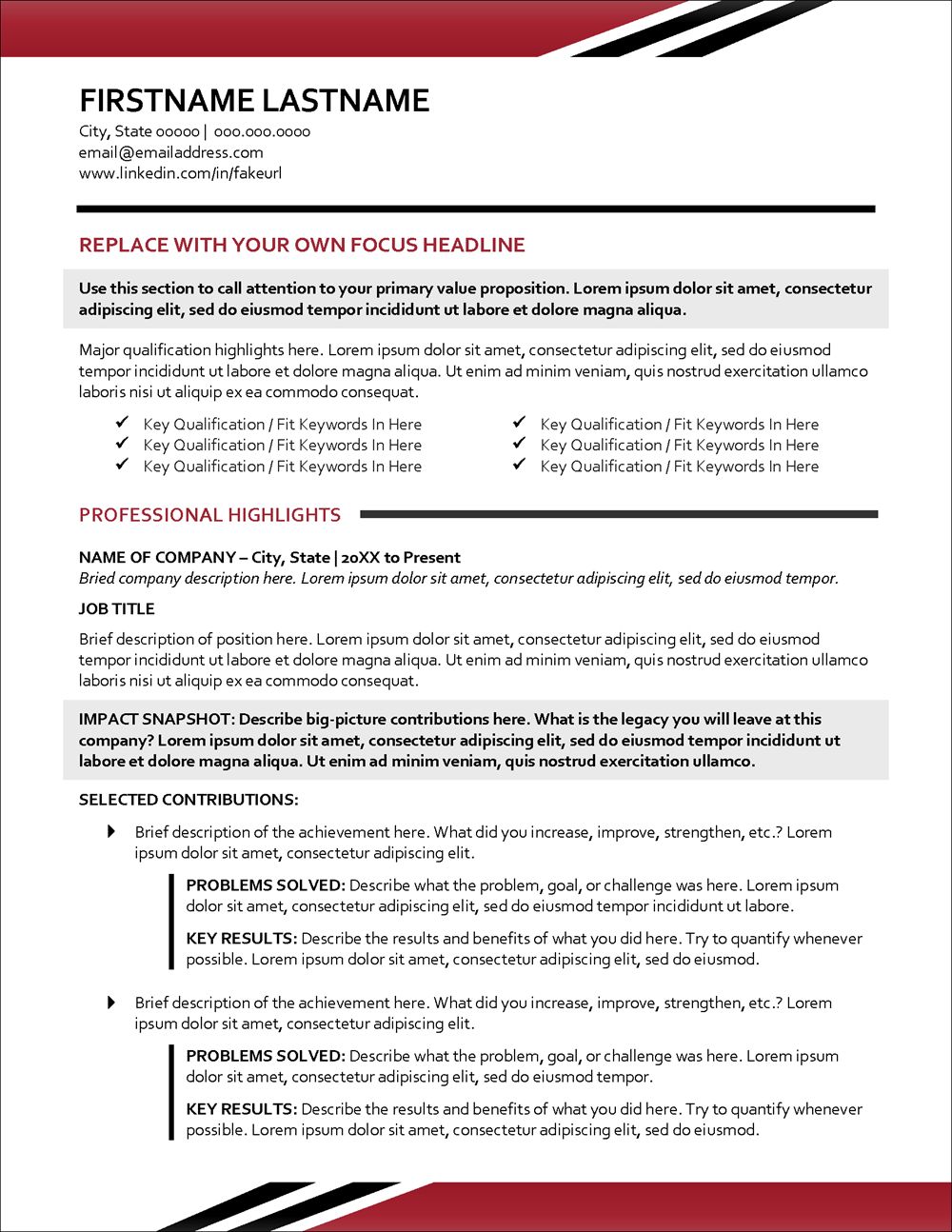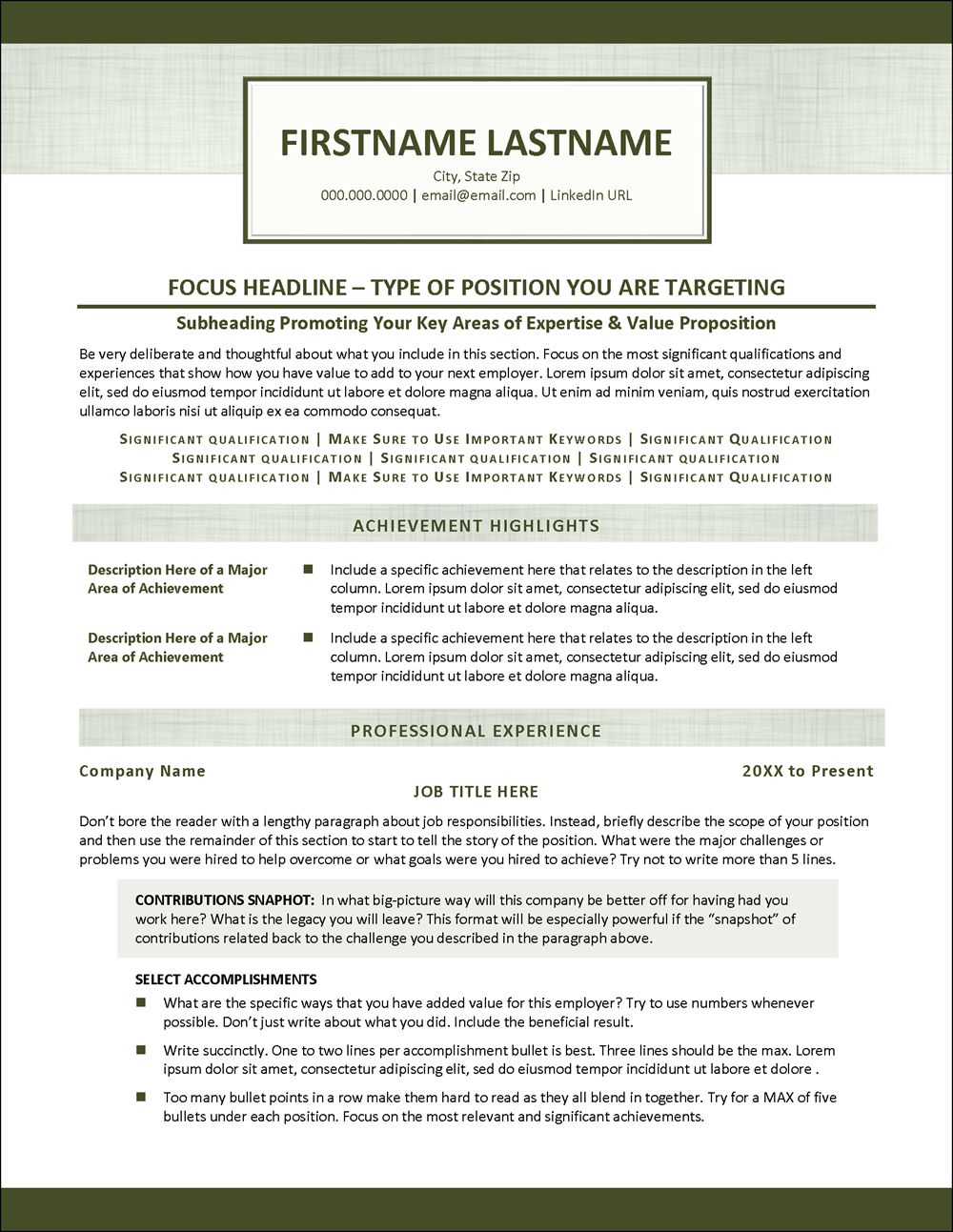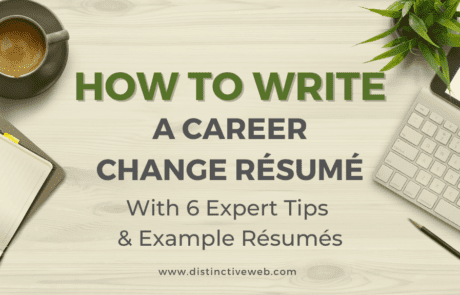
Resume writing is a task that even the most accomplished professionals dread. Let’s face it. It can be daunting to sit down and try to condense your entire work history and accomplishments into one or two pages. It’s also easy to get overwhelmed by all of the resume advice out there – should you use a chronological resume format or a functional resume format, for example? Or maybe a combination resume format.
It’s easy to procrastinate and put it off until the last minute, but that will not get you the job you want. If you’re stuck and don’t know where to start, this post’s seven resume writing tips will help.
As a professional resume writer with more than a quarter-century in the career services industry, my team and I have worked with tens of thousands of job seekers, each one an individual, yet all with one thing in common: they need a great resume that will allow them to stand out from their competition.
While every single one of these job seekers is unique, we have repeatedly and consistently accomplished this goal for our clients, writing outstanding resumes that get interviews in even the most competitive job markets.
How do we do it? The truth is that the best resume solution and strategy is often as unique as the individual client. But, to develop those solutions, the seven resume tips in this post represent seven steps we carefully think through before tackling any new resume project for a client.
As you work on developing or updating your resume — as you try to come up with ways to present your background in a job-winning modern resume — keep these seven resume tips in mind.
What’s Your Target? The Foundation of Everything
What is your current career goal? What profession? What industry? What professional level? Knowing your resume objective and your goals for the next step of your career are the foundation of your resume and your entire job search.
Unless you know where you are going, you will have no idea what the focus of your resume must be, and you won’t even know how to begin writing it. Don’t expect a busy hiring manager to figure it out for you.
The fastest path for your resume to land in the “circular file graveyard” is to try to be all things to all people, writing an intentionally broad resume.
Your resume must have a precise focus and convey that focus in five seconds or less. If it doesn’t, it will be discarded. It is that simple. Your resume summary with a headline that includes the job title you are targeting is the modern way of focusing your resume. But don’t stop there. Every word and element of your resume must support your focus.
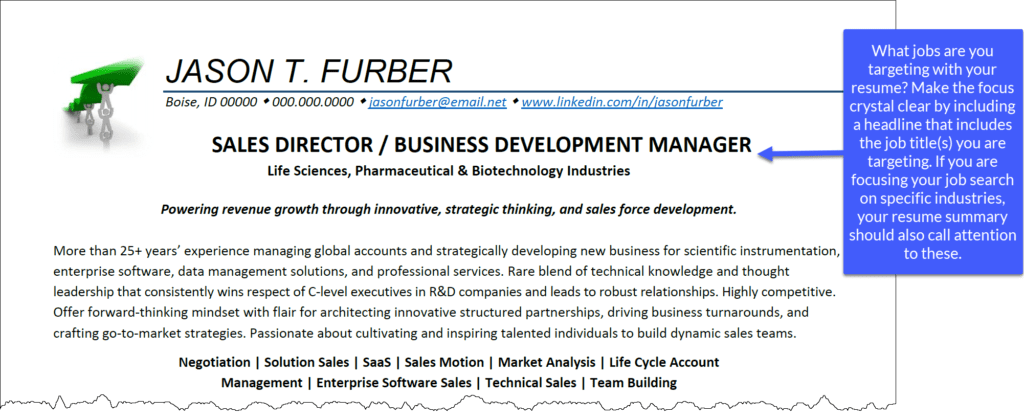
Who Is Your Audience?
Now that you know your goal, you are ready for the next step of writing a persuasive resume: thinking about the recipients of your resume. In other words, your next potential employers.
This might be the most critical piece of resume advice because, without an understanding of your resume’s intended reader, you’ll be “shooting in the dark,” unable to make decisions about what to include, what to exclude, and what to emphasize in your resume.
You’ll want to think through this step for each specific job you target. If you understand the job requirements and priorities of the hiring managers, you can customize the resume you submit with your job application.
So, ask yourself: What are the expectations and requirements of a candidate for the job you are targeting? You can learn a lot just by reading the job ad carefully.
What are the problems that a person in your ideal position is likely to be faced with?
In what way will the company profit from having an exceptional performer in the position you are targeting?
Remember that the hiring manager has problems they hope their new hire will solve. What are those problems? Do they need to increase sales? Reduce costs? Increase productivity? Improve efficiency?
If you identify the problems of your target audience, you can write a compelling resume focused on how you are the ideal candidate to solve them.
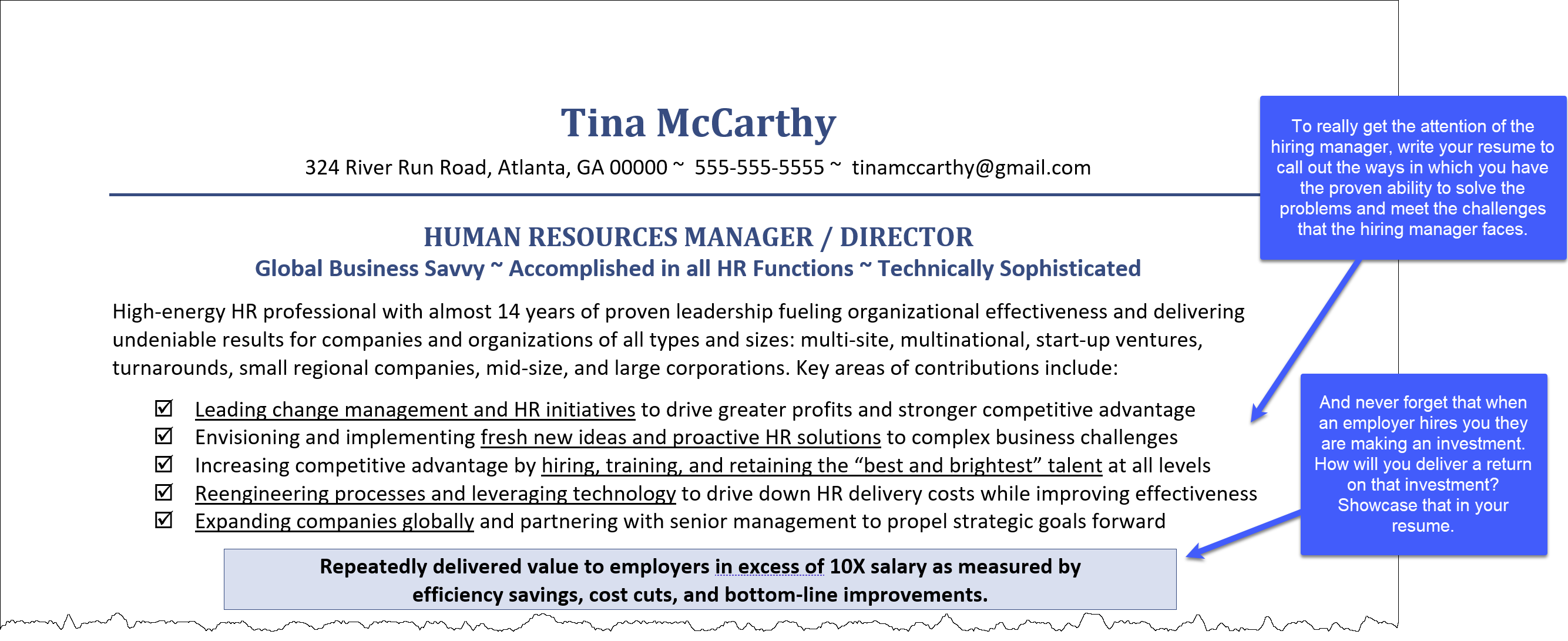
An employee is an investment, and if you can create a resume that proves you have VALUE to offer and will produce a better RETURN on that investment than the next guy, doors will swing open to you.
Who Are Your Competitors?
- Who is your competition in the job market?
- What qualifications might they have that you don’t have?
- What qualifications might you have that they don’t have?
For most situations, I’m not referring to specific individuals. You wouldn’t want to violate the privacy of any particular person competing for the same type of job.
But, there is definite value in defining your competition in generalities. What qualifications, soft skills, and relevant experience does the typical candidate have for your target job?
Knowing your competition is a vital part of the next resume tip.
Be Clear About Your Weaknesses
Now that you know where you are going, understand what your audience is seeking, and know what your competition brings to the table, you are ready to fully define the problem or problems that your resume must overcome.
Some of those problems might be obvious. Work-history gaps, concerns about age discrimination, and multiple job changes are among the most common.
But, having worked through the first three resume writing tips, you may have identified others.
Are there key technical skills you are lacking? Educational requirements that you don’t quite meet? Ways that your experience doesn’t quite stand up to your competition?
Whatever those weaknesses might be, make sure you define them.
Don’t just ignore the weakness. If you know what it is, you can likely downplay it on your resume or counter it with a relevant strength.
Think Creatively and Outside the Box
Now, take everything you have ever read or learned about writing a resume and forget it. Well, maybe not everything, but at this point, you need to begin thinking creatively and strategically.
Remember that the best resumes are essentially advertisements –marketing pieces –personal sales pitches.
Resumes are NOT autobiographies! They are personal marketing documents meant to sell you, the job seeker, as the ideal candidate for a particular position.
Everything about the content, the structure, and the design of your resume should be strategically and selectively included, excluded, highlighted, or de-emphasized.
Always be absolutely and meticulously honest, but be willing to think outside the box and present your background in a format and structure that will be most flattering to you in relation to the career goal you are targeting.
Do you want to be one of a kind? Or do you want to be one of many?
Your resume is meant to make you stand out and shine.
You will NOT achieve this by following some rigid format and structure that doesn’t have the flexibility to showcase your unique qualifications.
It is okay to use a resume template but make sure you are using a high-quality resume template that can be easily customized to make it your own and that is applicant tracking system (ATS) friendly.
The best resume templates will also give you creative ideas about how you might best format your resume to communicate your career history. These example resume templates illustrate this.
Reviewing resume samples of professionally written resumes can inspire you too.
You Are One of a Kind & Your Resume Should Show It
Remember when I told you to take the time to understand your competitors for your target jobs? Now take an inventory of the key skills you offer. In what ways do your experience and education set you apart from your competition?
Writing an effective resume requires that you infuse your resume with your differentiating personality, passion, and expertise.
These are probably THE most important factors that will turn your ordinary resume into an extraordinary resume.
A generic resume will do you more harm than good. So many resumes are terribly generic and cookie-cutter. They are boring, read like a job description, and all look the same.
Your resume should emphasize your differentiators and distinguishing qualifications rather than just the baseline qualifications that are common and expected in your profession.
Read the job ad you are applying for carefully and craft your resume to showcase your relevant skills. Your resume summary is an excellent place to call attention to these differentiators.
You should also write your resume job descriptions to call attention to your differentiators. Job duties can be vital as they serve as keywords that help your resume perform in ATS. But it is your accomplishments that will capture the attention of hiring managers.
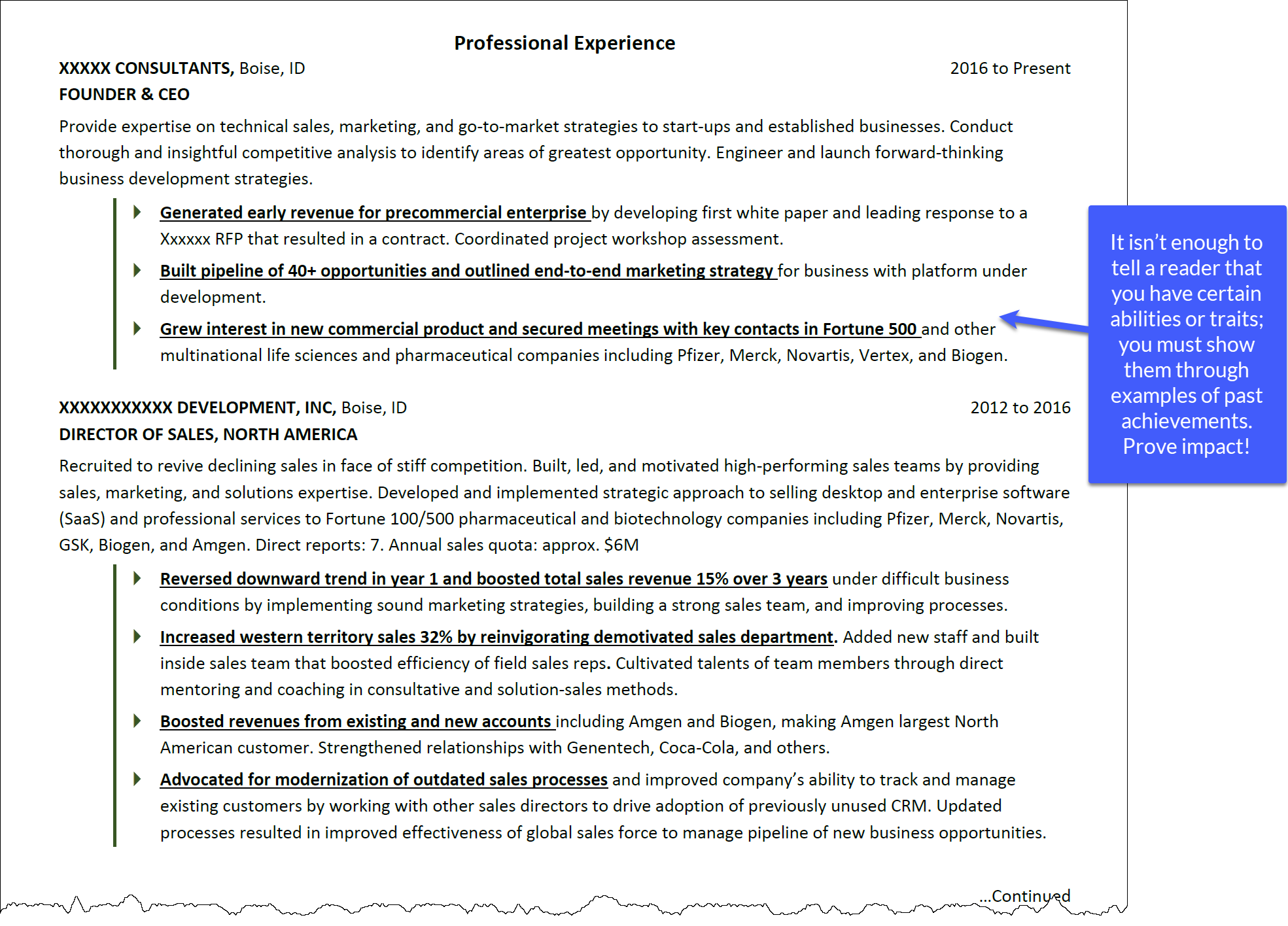
It isn’t enough to tell a reader that you have specific abilities or traits; you must show them through examples of past achievements. Prove impact!
Forget about cliches and jargon. Soft skills are often important, but even those should be backed up by specific accomplishments. Many job seekers bullet point their accomplishments to draw attention and make them and easier for the hiring manager to read.
There is an obvious competitive advantage won by a candidate who truly understands and communicates their value to the potential employer clearly and compellingly. This is what you want to strive for when writing your resume.
Putting It All Together
It is really all about how you frame and position your experience, your achievements, your educational background, and any other qualifications.
Once you get to this step, you are ready to put pen to paper (or fingers on the keyboard) and begin writing.
Take what you know about the expectations and the desires of your target audience, combine this with your understanding of the competition, your differentiating value add, value-proving examples of your past achievements, and the weaknesses you defined, and start writing your resume.
Perhaps you are making a career change into a completely new profession. Much of your experience is transferable, but this might not be immediately obvious to the resume recipient.
How can you reframe your past experience to selectively emphasize the transferable skills and de-emphasize those that will no longer be relevant? Only relevant information should be included in your resume.
Is there a qualification you are lacking for the position you are targeting? Perhaps some other experience you have had has helped you to develop this qualification in a non-traditional way, such as volunteer work. How can you reposition that experience to illustrate the qualification in question?
Maybe you are returning to a career path that you veered away from ten years ago. Your recent experience is not as relevant as your past experience. What opportunities do you have to switch up your resume formatting to bring the older skills to the forefront?
Or maybe you have a couple of significant gaps in your work history. Can you think of a way to redesign your resume to take the visual emphasis off of the chronology/dates of your experience and place it instead on your achievements and results?
So, what problems does your resume need to solve?
How can you best highlight your skills for the job posting you are targeting?
As you get started, remember that it is words on a piece of paper. It is easy to edit and move things around. Don’t be afraid to experiment (just do it BEFORE you use it in the job market!).
Finishing Touches & Resume Writing Tips
If you aren’t sure what the best resume strategy is, create several versions and ask your friends and family for feedback before choosing the one you use in your search.
Once you think you have the perfect resume, set it aside for a day, then come back and review it once again from the perspective of hiring managers. Are there any tweaks that need to be made before applying for the job? Did you miss any opportunities to highlight relevant skills?
While you are at it, proofread your resume carefully, correcting any grammatical errors or spelling mistakes. While the resume writing tips in this post will make an immense positive difference, nothing will turn off hiring managers as quickly as a resume with obvious errors.
And, if you get stuck, that is what professional resume writers are here for! We can often provide solutions you would never have thought of on your own. We encourage you to book a free resume consultation to learn more and get your questions answered.

